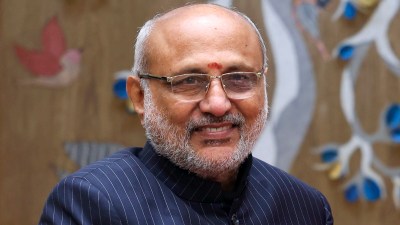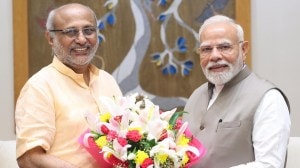After Haryana loss, Congress picks election observers for Maharashtra, Jharkhand
The Election Commission of India on Tuesday announced the Maharashtra Assembly polls will take place on November 20, while Jharkhand polls will be held in two phases – November 13 and 20.
 For Mumbai and Konkan region, the party announced Karnataka minister G. Parameshwara and former Rajasthan Chief Minister Ashok Gehlot as the observers. (File photo/ X)
For Mumbai and Konkan region, the party announced Karnataka minister G. Parameshwara and former Rajasthan Chief Minister Ashok Gehlot as the observers. (File photo/ X)Taking a cautious stand after its shock defeat in the Haryana Assembly elections, the Congress appointed its election observers for Maharashtra and Jharkhand, giving the responsibility to three former CMs, two former deputy CMs, one sitting deputy CM and four ministers from Karnataka and Telangana.
The Election Commission of India on Tuesday announced the Maharashtra Assembly polls will take place on November 20, while Jharkhand polls will be held in two phases – November 13 and 20. Both the results will be announced on November 23.
For Maharashtra, the party has appointed 10 leaders as its senior observers for the elections in the state. For Mumbai and Konkan region, the party announced former Rajasthan Chief Minister Ashok Gehlot and Karnataka minister G. Parameshwara as the observers.
For Vidarbha (Amravati and Nagpur), the party has made former Chhattisgarh Chief Minister Bhupesh Baghel, former Punjab Chief Minister Charanjit Singh Channi, and former Madhya Pradesh minister Umang Singhar as its observers.
For Marathwada, the party has picked former Rajasthan deputy CM Sachin Pilot, and Telangana minister Uttam Kumar Reddy. For Western Maharashtra, the party has picked former Chhattisgarh deputy CM TS Singhdeo and Karnataka minister MB Patil. For North Maharashtra, the party has picked Rajya Sabha member Syed Naseer Hussain and Telangana minister Anasuya Seethakka.
For Jharkhand, the party has made Lok Sabha MP Bihar Tariq Anwar, former West Bengal Congress chief Adhir Ranjan Chowdhary and Telangana deputy CM Mallu Bhatti Vikramarka its observers.
The party making 10 election observers for Maharashtra and three for Jharkhand comes after the party made Ashok Gehlot and party treasurer Ajay Maken as its observers in Haryana – where the party lost the elections managing to win just 37 seats – falling short of the majority mark.
Since the results of Haryana, the Congress has seen bitter infighting, with leaders going public with their criticism of how the campaign was run. Questions were asked of the party high command for letting the infighting impact the election results and over the “sidelining” of Selja Kumari, particularly as the distinct pro-Jat tilt of the Congress strategy was believed to be reason for the loss.







